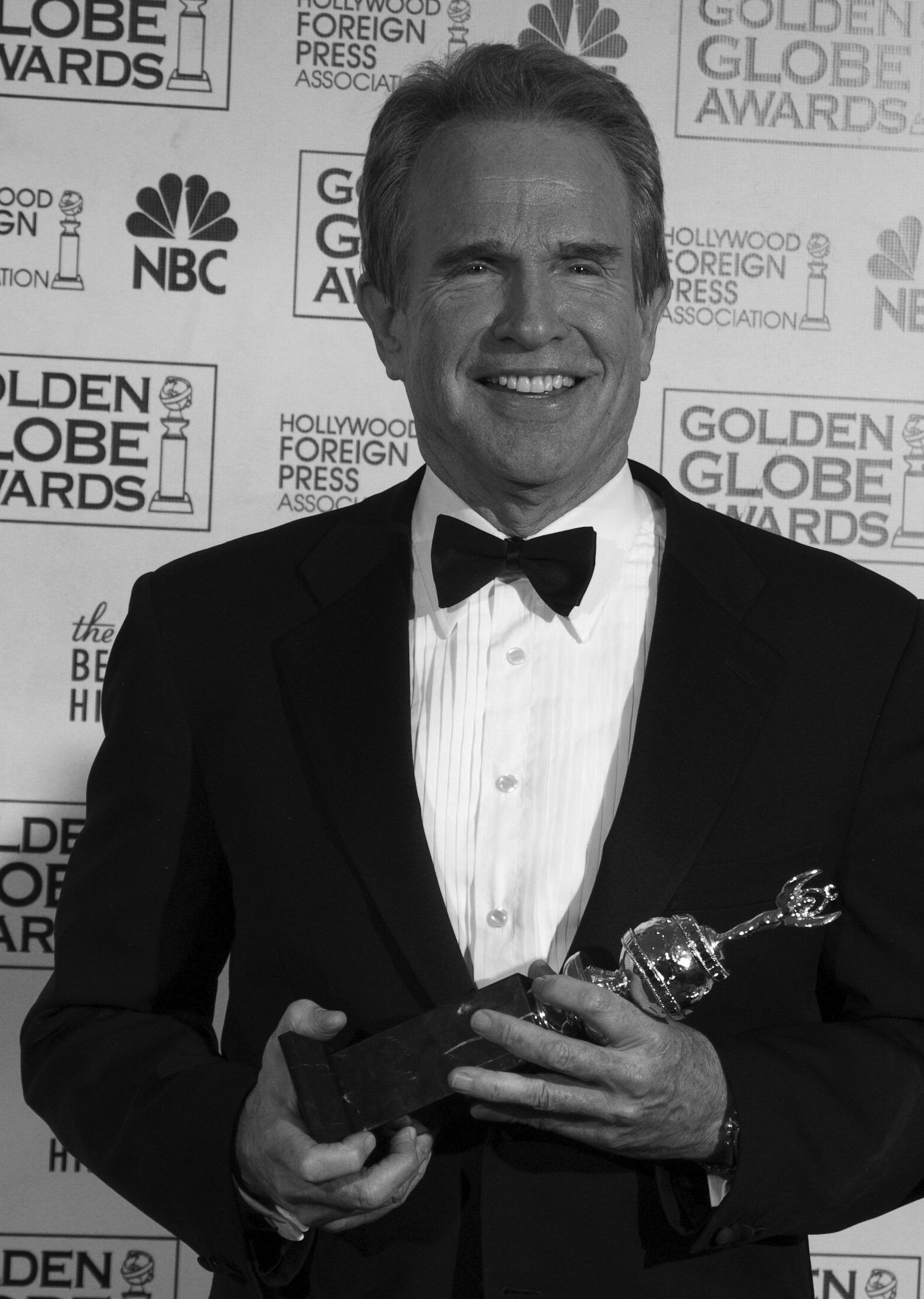
- Cecil B. DeMille
Ready for My deMille: Profiles in Excellence – Warren Beatty, 2007
"Arial",sans-serif;color:#550016″> Cecil B. deMille Award was presented to its namesake visionary director, the Hollywood Foreign Press Association has awarded its most prestigious prize 66 times. From color:#1F1F1F”> to color:#1F1F1F”>, color:#1F1F1F”> to color:#1F1F1F”> and 62 others, the deMille has gone to luminaries – actors, directors, producers – who have left an indelible mark on Hollywood. Sometimes mistaken with a career achievement award, per HFPA statute, the deMille is more precisely bestowed for “outstanding contributions to the world of entertainment”. In this series, HFPA cognoscente and former president Philip Berk profiles deMille laureates through the years.
Warren BeattyReds reflected his liberal politics. Shampoo poked fun at his well-publicized libido, Love Affair was a valentine for his wife Annette Bening, and Rules Don’t Apply, his homage to old Hollywood.
Diane Keaton, Joan Collins, Natalie Wood, Julie Christie, Isabel Adjani, and Madonna. Even Elizabeth Taylor!
Bugsy. It was his costar Annette Bening who not only tamed him, she married him, and gave him the family he always wanted.
Shirley MacLaine and a promising high school quarterback, he turned down ten football scholarships to follow in his sister’s footsteps, first working as a stagehand at the National Theatre in Washington and eventually moving to New York where he studied with Stella Adler.
Elia Kazan to cast him in the lead opposite Natalie Wood in his first movie Splendor in the Grass, for which he won a Golden Globe as New Star of the Year (a discontinued category). Overnight he became a star and has remained one ever since, his name always above the title. No actor in history can boast that distinction.
Robert Rossen’s Lilith and Arthur Penn’s Mickey One, which earned the disapproval of even discerning critics. But then there were fan favorites like All Fall Down and Promise Her Anything.
Bonnie and Clyde possible, on which he re-teamed with Penn. The film initially struggled for recognition but eventually became the most influential film of the decade and a huge box office hit.
George Stevens for The Only Game in Town (opposite Elizabeth Taylor), Robert Altman for McCabe and Mrs. Miller (with Julie Christie) Richard Brooks’ for $ (with Goldie Hawn), Alan Pakula for Parallax View, and Mike Nichols disastrously for The Fortune Cookie.
Hal Ashby’s Shampoo, again with Julie Christie, which he also co-wrote and produced. He followed it with Heaven Can Wait, which he co-directed with Buck Henry, and for which he won Golden Globes as best actor and for best motion picture comedy (producer). The next few years he devoted himself to his major opus, Reds, an ambitious historical epic based on the life of an American communist which only Paramount could bankroll. After numerous reshoots and reedits, the film came in well above budget, and although it received mixed reviews it ended up with 12 Oscar nominations winning three for Best Director, Best Supporting Actress, and Best Cinematography. Beatty also won the Golden Globe as Best Director.
Elaine May. Despite support from his costar Dustin Hoffman it was an unmitigated failure, following which he again took an extended break. But this time he came back in triumph. Dick Tracy was a critical and box office hit and it received numerous Golden Globe and Oscar nominations, its most notable win a Best Song Oscar for Stephen Sondheim, his only film win.
Barry Levinson’s Bugsy, which won the Golden Globe for Best Motion Picture Drama and changed his life. He married his costar and he’s been a dedicated family man ever since. As a valentine to his wife, he produced and starred in Love Affair, a remake of the Irene Dunne – Charles Boyer classic, which turned out to be his least credible work. He made a comeback with a pungent political satire Bulworth, which he wrote, produced, directed, and starred in. Again, it received numerous Oscar and Golden Globe nominations including ones for Best Picture and Best Actor from the HFPA.
mso-fareast-font-family:"Times New Roman";color:#222222″>, which deserves a second evaluation.
Cary Grant once said, ‘Would I rather go out and trip over cables or would I rather do this other thing?’ sometimes the other thing wins out.”

